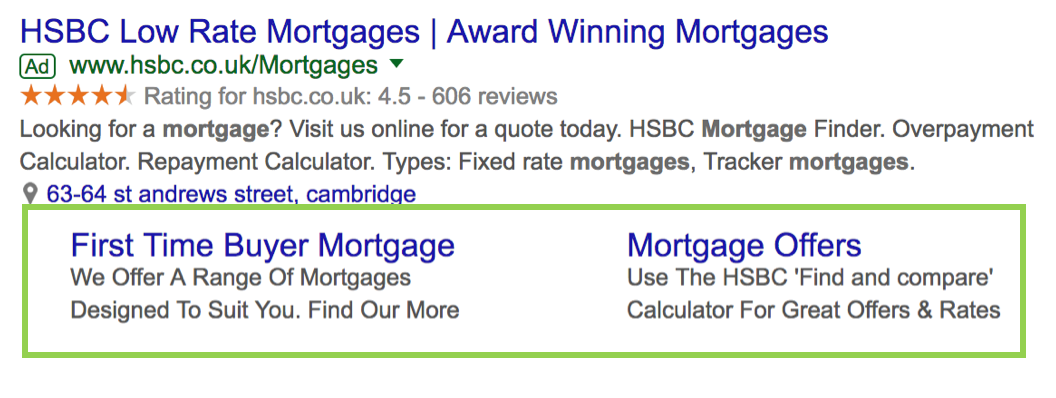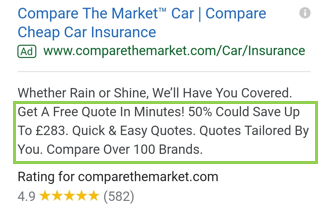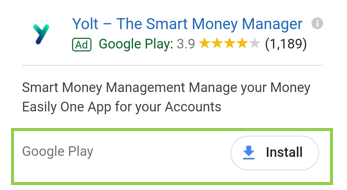4 Tips to Improve Your Finance Company’s Advertising with Google AdWords
 The finance industry isn’t glamourous, which makes marketing it a little difficult. People will seek finance products when they are needed, rarely are they impulse decisions. This makes attracting new customers problematic for those businesses in financial services, particularly with the challenges they face.
The finance industry isn’t glamourous, which makes marketing it a little difficult. People will seek finance products when they are needed, rarely are they impulse decisions. This makes attracting new customers problematic for those businesses in financial services, particularly with the challenges they face.
These include being in a highly competitive market, with all trying to target those actively looking for specific financial products, and the distrust the public has for banks and financial providers. Research from PwC found that only 32% of people have confidence in banks, meaning 68% of people don’t.
With these factors going against you it is imperative that your ads are as effective as possible. Follow these four tips to improve your finance company’s Google ads.
Specific Landing Pages
Relevant landing pages for your ads are vital, but often overlooked. Put yourself in the shoes of your consumer - you are searching for something specific and are presented with an ad, you click on the ad because the text is relevant to your search but when you arrive on the landing page the content is irrelevant or you have been taken to the homepage. What would you do?
Most consumers put in this position would leave the page and probably click on a competitor’s ad. Creating specific landing pages for your ads will help secure the conversion, giving you a higher ROI.
Not only do these specific, optimised pages improve the customer’s experience, but they also assist in increasing the Quality score of your ad, along with other factors, due to the relevancy of the ad text to the landing page content.
Quality score is the metric Google AdWords uses to determine the cost per click (CPC), multiplied by your maximum bid to determine your ad rank in the auction process.
According to Google, landing pages should be four things:
- Relevant: The page should be useful and exactly what they were expecting to find. If they land on a general page or the wrong product they will likely leave the website and visit a competitor instead.
- Trustworthy: A poorly designed page that lacks product/ service explanations will give consumers the impression that the website may not be completely honest or transparent. They want to know they are doing business with a reputable source.
- Easy: Consumers shouldn’t have to click through a hundred links to find what they clicked on the ad for. A landing page should be easy to use and well optimised for mobile devices.
- Reliable: A landing page should be dependable, no matter the platform it is being viewed on. A slow page load time can make customers impatient, often causing them to leave the website, meaning no conversion and higher bounce rates.
Use All Ad Extensions
Sometimes less is more, but this isn’t the case for your paid search advertising. AdWords offers a range if ad extensions to help enrich your campaigns and increase conversions. These extensions include:
- Sitelink extensions: Allows you to add links from your website to help consumers find what they are searching for.

- Call extensions: Allows searchers the ability to click a number to call your business.

- Callout extensions: Allows you to add extra ad copy so you can tell searchers what sets you apart from the competition.

- Location extensions: Allows searchers nearby to find your location or give you a call.

- Review extensions: Allows you to showcase reviews from reputable sources.

- App extensions: Allows searchers to click a link that sends them to the app store to download your app.

- Structured Snippets: Allows you to add descriptive text to learn more about a product/ service.

These extensions not only give searchers more information about what the ad, and your business, is offering, but they also make your ad more relevant which, as mentioned previously, increases the Quality Score and the ad position as a result. They also physically make your ad bigger, taking up more space on the search engine results page (SERP) and attracting clicks from consumers as a result.
Competitor Targeting
Competitor targeting may seem like an obvious tactic. Of course you want to steal consumers from your main competition, but there is a way of doing it well.
For competitor targeting you first need to create a list of competitors of a similar size in the same industry/ selling the same products as your business. You then simply start bidding on the branded search terms for these competitors.
There are rules that go with competitor targeting however. For example, if you are Adidas bidding on Nike, you are not allowed to use their trademarked brand name in your ad copy. So, you wouldn’t be able to say ‘Adidas are better than Nike, so try us instead’. This type of text would cause your ad to get reported, removed and could cause you to incur some penalties. The same applies for landing pages, the URL cannot have the competitor’s brand name in ‘example.com/Adidas-is-better-than-Nike’.
This doesn’t apply to authorised advertisers, resellers and information based websites.
There are other ways you can target your competitors and pull consumers from their ad to yours. One way is to make use of the extensions, covered above, these will help make your ad take up more space on the SERP and possibly give you a higher Quality Score, placing your ad above theirs for general search terms.
You can also beat their discounts, if you see a competitor has an offer or discount in their ad copy, you can ensure that you offer more of a reduction in price, which is sure to attract customers.

Implement Call Tracking
Implementing call tracking is probably one of the most important tips for those that get a lot of their leads via the telephone. Call tracking allows you to attribute leads, this allows you to see which channels have a high ROI and those that are underperforming and wasting budget.
Call tracking software is supplied by companies such as Mediahawk, they set up unique numbers for your ads, these are then tracked and when someone calls from an ad you can see the exact keyword/ term they typed into the search engine that steered them to the specific ad which led them to call.
When you come to analyse your marketing campaigns you will be able to see which ads were the most successful and which didn’t work, allowing you to perfect future campaigns and effectively distribute budget to the most profitable channels.

 Delicious
Delicious Digg
Digg StumbleUpon
StumbleUpon Propeller
Propeller Reddit
Reddit Magnoliacom
Magnoliacom Newsvine
Newsvine
Comments
Post new comment